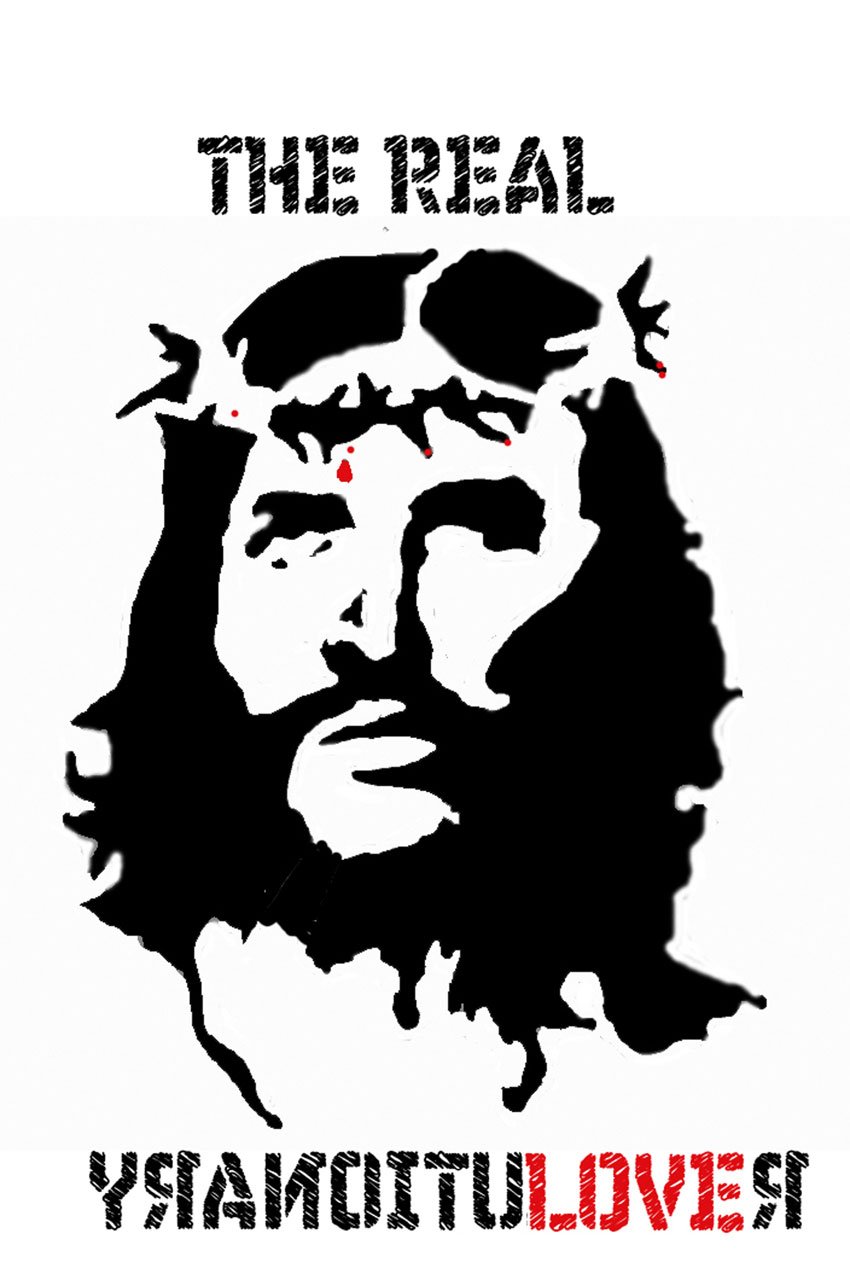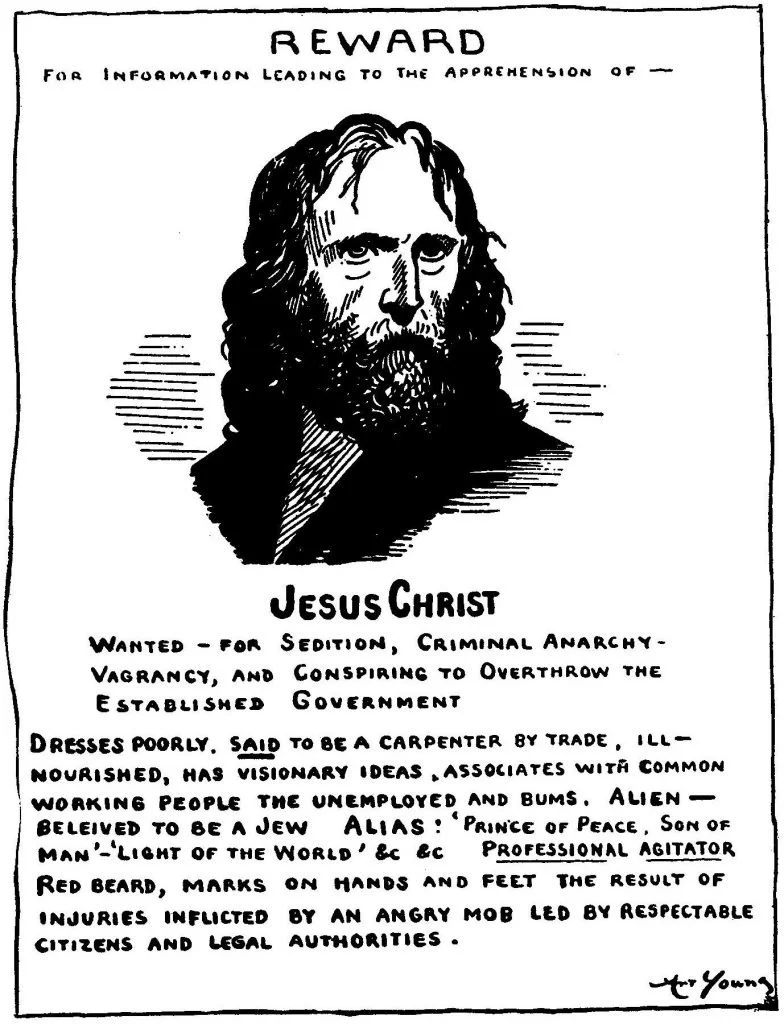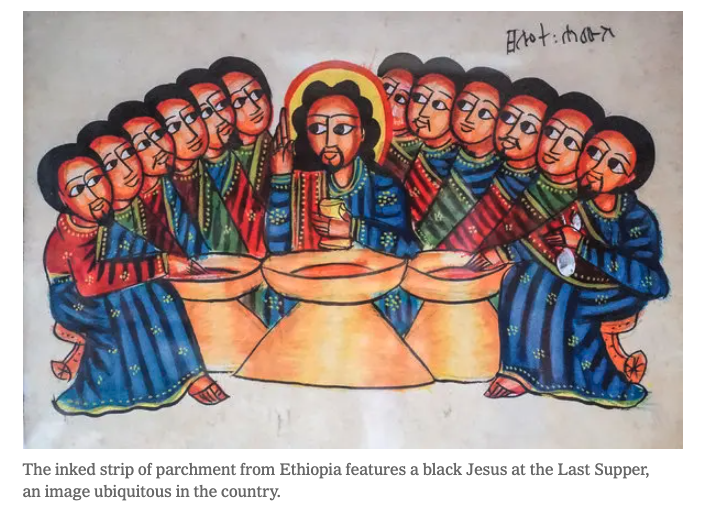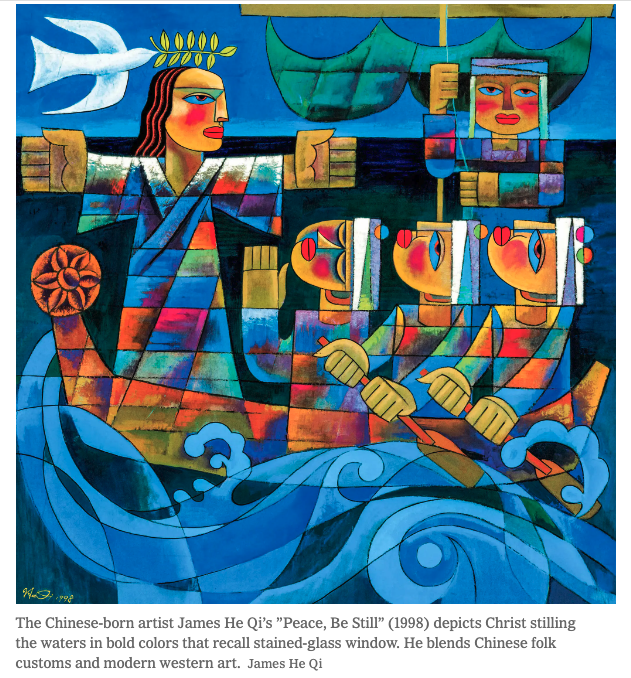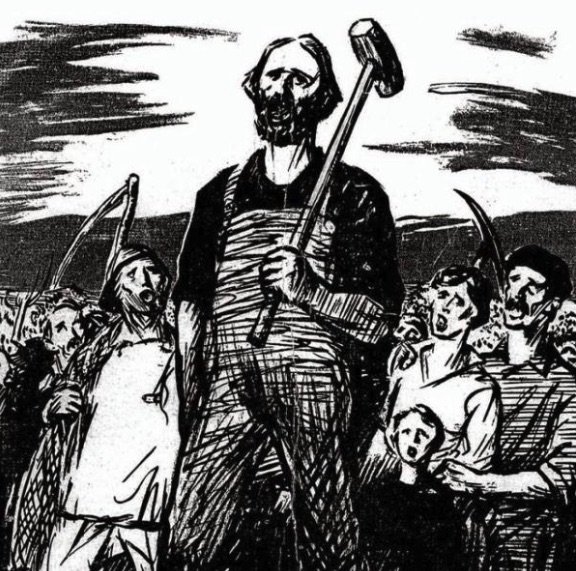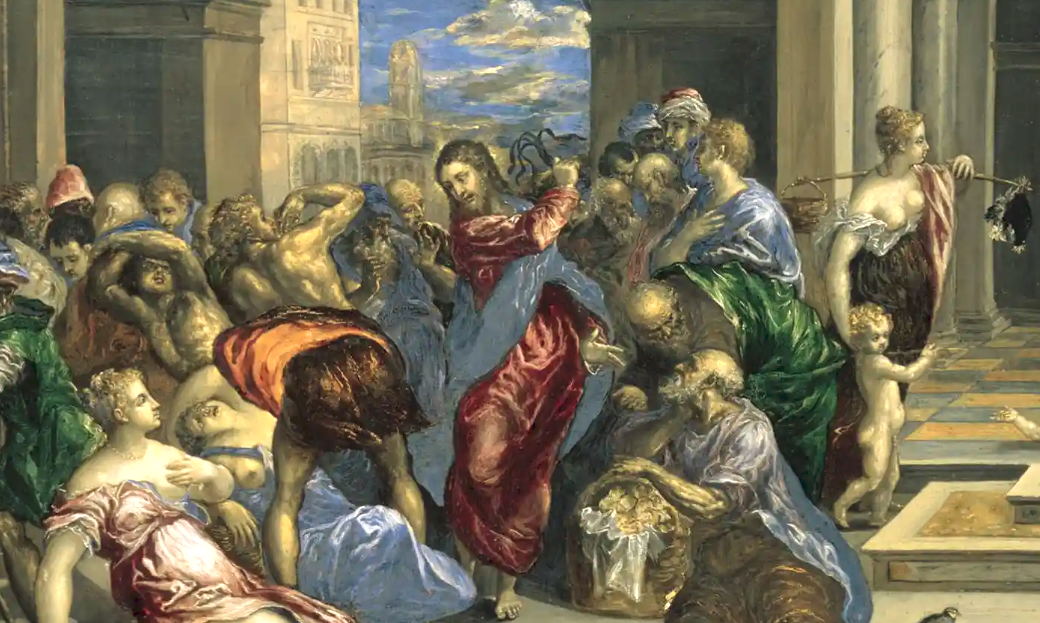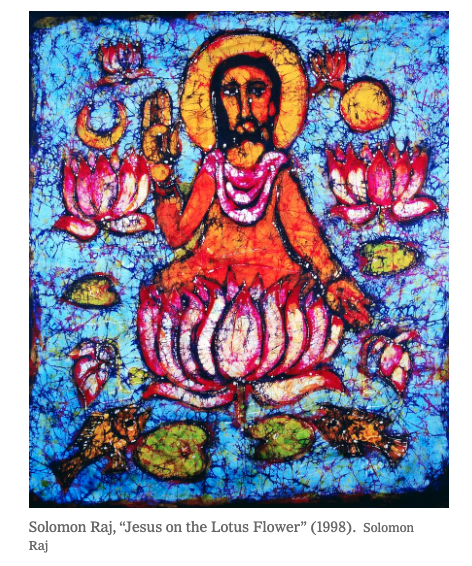The Jesus Project
Mission Statement for my new script on the life and work of Jesus
with notes on sources
The historical record informs us that Jesus was a radical. He was an outcast, and an apocalyptic prophet who wanted deep social change. He taught love and nonviolence to a world that needed it and still aches for it today. He laid out the possibility of humans transformed and able to connect with others. He taught how to breakthrough to people and his method is badly needed in a world plagued by alienation and school shootings.
Jesus was influenced by the Essenes, the Zealots, and may have been touched by a primitive form of Buddhism. He was a Jewish street teacher so in love with God, he went beyond the compromises and casuistry of the Torah to revive life itself. He envisioned the end of empire and violence. He started a movement. He called for the Reign of God, in which the love of God was free, inclusive, and powerful. Even if his movement is at times rudderless today, a new movement could boldly help itself to the history of Jesus and drink deep.
My work shows Jesus of Nazareth as a human–a struggling, working class young carpenter who started a mass movement for justice and truth. This work is a counterpoint to the mainline, nationalist Christianities of today. They are captured by the forces of militarism, machismo, and intolerance. Jesus calls us out of all that, not into that.
We can show this path in a work that inspires people to change the world, as a part of a wave of light, truth, and deep renewal.
In this project, I rely on the work of a variety of writers who are careful, radical, and fired up. From the ancient Gospel of Thomas to the work of Dr. Bart Ehrman, Elaine Pagels, Ched Myers, and Bruce Chilton. Their work shows that Jesus was not a leader who emphasized his own divinity. Ehrman points out, there are many human hands who forced the Bible to change Jesus into God, but in the historical record, there are zero times that Jesus ever said “I am God.” As Paul said, Jesus did not consider equality with God something to be grasped at.
The online series on Jesus, The Chosen enlightens audiences to see more of the living Jesus. It works because it shows a dynamic, charismatic, revolutionary Jesus. But it has an evangelical bias. It makes specious claims that the gospel writers Matthew and John were essentially stenographers who wrote down everything Jesus said, verbatim. Seems like a desperate attempt to prove the literary truth of the Gospel, an impossible claim. Today, we need a Jesus who stands up to state violence, empire, propaganda, and alienation.
The Jesus Project offers more to the world. This is Jesus for the world, for the interfaith audience, the historical materialists and agnostics, as well as the believers.
My project is scholarly, but also streetwise. I am interested in sharing with the world an annotated bibliography of some of the books which have led me here:
Annotated Bibliography
Aslan, Reza. Zealot: The Life and Times of Jesus of Nazareth. Sydney: Allen & Unwin, 2017.
Well–written, and an exciting page turner. Delivers a historical context that Zealot revolutionary energy electrified the community around Jesus. Excellent criticism of Paul versus James/Peter in the early Church.
Chilton, Bruce. Rabbi Jesus: An Intimate Biography. New York: Doubleday, 2000.
Alleges that Jesus suffered early in life due to his questionable paternity. Cites the Gospels as sources for this. Explores how being labelled a “Mamzer” i.e. “bastard” puts Jesus on the outside of his society, with deeper compassion for fellow outsiders.
Alleges that Jesus was probably illiterate. Helps explain Jesus’s oral tradition. Note that Dr. Bart Ehrman also pointed out that Peter and other Apostles were illiterate, according to Acts. (However, other scholars have alleged that Jesus may have been literate in his native Aramaic and may have had a basic understanding of Greek. Luke records Jesus reading aloud from Isaiah, in the Temple.)
Dear, John. Jesus the Rebel: Bearer of God's Peace and Justice. Lanham, MD: Sheed & Ward, 2000.
Father Dear makes the case that Jesus was fundamentally a teacher of radical non-violence. Father Dear is influential and energetic, and is a fried. He is responsible for suggesting three other influential books on this list: Why Civil Resistance Works, Binding the Strong Man, and his own excellent little work on Gandhi. This author/activist/priest/civil resistor is a kind of a spiritual mentor, and had had a profound impact on my politics and life, for over 20 years. I have taken his classes, online. I reviewed his autobiography for Catholic Worker. He is a working Catholic priest, an ex-Jesuit, and follower of Mahatma Gandhi. He could be a saint someday. He will appear in this list again.
Ehrman, Bart D. How Jesus Became God: The Exaltation of a Jewish Preacher from Galilee. New York, NY: HarperOne, an imprint of HarperCollinsPublishers, 2015.
A former Evangelical has become a leading scholar/critic of orthodox Christianity. Ehrman is hotly debated and well-known, and his scholarship is tight. It’s quite liberating to point out that while more traditional Christians like to point out that Jesus claimed his own Divinity with “I am the Way, the Truth and the Life” this is a claim that is only found in John, which may have been written as late as 100 C.E. It’s such a heavy claim, so often cited to “prove” Christ’s divinity. If it was historically accurate, and is an actual claim that Jesus made, why is it not in any of the earlier Gospels?
Ehrman, Bart D. Misquoting Jesus: The Story behind Who Changed the Bible and Why. New York: HarperOne, 2007.
Ehrman hands in a well-researched history of the Bible, and its literally thousands of errors in transcription. Some errors were honest mistakes, some were not. Some deliberately burnished the story of Jesus of Nazareth to augment his claims, and increase the case for his divinity. Both works by Ehrman include an interesting history of the various early movements to understand Jesus’s true nature. For example, Adoptionism believed that Jesus was born human, but that God adopted Jesus as his “Son” at the moment of his baptism.
Eknath, Easwaran. The Dhammapada. Tomales, CA: Nilgiri Press, 2019.
I took great delight in this, the first time I read this. It’s a great translation of the original Bible of the Buddha. Most Westerners have no idea that there is a text of the historical Buddha’s actual teachings. What struck me the first time that I read it is the eerie similarity between the quotations of the Buddha here, and the teachings of Jesus of Nazareth. I am coming back to this book soon, to explore further.
Fromm, Erich. You Shall Be as Gods. London: Cape, 1967.
Guyenot, Laurent. From Yahweh to Zion: Three Thousand Years of Exile: Jealous God, Chosen People, Promised Land... Clash of Civilizations. Lone Rock: Sifting and Winnowing Books, 2018.
On the Guyenot book:
I freely admit that this book is flat-out dangerous. I don’t want to be associated with Anti-Semitism, which has infected the history of Christianity. However, this book is a necessary critique of the Old Testament, for its nationalism, its violence, and its exclusionary practices. Helps to put the extremities of today’s right-wing Israel into historical context. Should be seen as a part of the critique of fascism and religious intolerance. And for those of us who vehemently claim that “every word of the Bible” is true, need desperately to read this book. No more illusions of the mind.
I am reminded of Erich Fromm’s “You Shall Be as Gods” which had the audacity to suggest that God doesn’t change, but our conception of God certainly and clearly “grew up” in the time from the jealous Old Testament, to the bold frontiers of the New. To suggest that the God of Jesus is very different from the God of Moses has been denounced as heresy, and as “Marcionism” but I personally would rather say that the insanity of the Old Testament calls forth a challenge to us, to redefine how we see God, and how God is calling us out of our old conceptions and into the new.
Gandhi, and John Dear. Mohandas Gandhi: Essential Writings. New Delhi: New Age Books, 2004.
Father John Dear was able to read the “Complete Works” of Gandhi and then summarize the entirety into a concise little book, published by Maryknoll. He also penned a fifty page introduction. Reading this summary of the work of Gandhi twenty years ago in the desert of New Mexico radicalized me into a believer in nonviolence. Father Dear emphasizes Gandhi’s own interest in the Gospels, and the radical nonviolence of Jesus of Nazareth. Key take-aways include: Gandhi often said that the Sermon on the Mount was the best summary of the philosophy on nonviolence.
Meyer, Ben F. The Aims of Jesus. San Jose, CA: Pickwick Publications, 2002.
He is well respected. I found the book rather tame.
Myers, Ched. Binding the Strong Man. New York: Orbis Books, 1992.
This is the main book that inspired this whole Jesus Project. And it was recommended by Father John Dear, heartily. Dear even once joked it was the secret source for all of his best ideas. Ched Myers is a Marxist hermeneutical scholar who does a deep dive into the archaeology and sociology of the times of Jesus, looking at class struggles, and economic pressures. He sees Jesus as fundamentally a social movement creator, a campaign leader, a specific political and religious leader and visionary.
Pagels, Elaine H. The Gnostic Gospels. Phoenix, 2006.
A seminal overview of some of the biggest secrets in history - the gospels that were edited out of the canon, because they didn’t fit the master agenda. But the fragments that have resurfaced back up to us, as of 1945, help to broaden our understanding of Jesus. Yes he did like to kiss Mary on the lips. Yes he was more of a surrealist, a riddler, a teacher of secret wisdom and initiation, and more radical than you can ever imagine. Essential.
Pagels, Elaine H. Beyond Belief: The Secret Gospel of Thomas. New York: Random House, 2003.
Pagels points out that the gnostic gospel of Thomas shows a more radical, surreal Jesus, revealing secret knowledge to his favorite disciple, Thomas. And that there was clearly a rivalry in the First Century Church, because the whole “doubting Thomas” story is only in the Gospel of John. Only John consistently paints Thomas as a fool, as someone impetuous, or as faith-challenged. That whole “Doubting Thomas” story? It’s only in John. Thomas clearly had his own subculture, and mini-movement inside early Christianity. Thomas as an apostle eventually travelled and evangelized in India, where he is buried. Was he traveling back to the holy land of Buddha?
Peterson, Eugene H. The Message: The Bible in Contemporary Language. Colorado Springs: NavPress, 2022.
A delightful new translation of the entire Bible into contemporary speech. Fresh. Some Bible scholars dismiss it as a rude “paraphrase” but I have taken great delight in the daring that Peterson took, to refresh the Bible for contemporary times, and give the language new clarity and energy. It inspired me to want to present Jesus as speaking in the language of his people. Intimately and affecting them deeply.
Smith, Morton. Jesus the Magician. Hampton Roads Press, 2014.
Smith is not a believer - but was a scholar and professor of religion at Columbia University. He gives himself great liberties, to explore just how close was Jesus to being “driven by a Spirit” - - and how true was the accusation that he “had a demon.” Yet in a way, the book reveres Jesus as a healer, exorcist, and magician, in the sense of his miracles workings as a form of magic. Key Takeaway from my first read, over 20 years ago: that Jesus may have picked up the practice/ritual from Egyptian Necromancy, that one can assume the “power of the dead” and claim to “stand in” for that person, if they are assassinated, or murdered unjustly. Therefore, the terrifying confusion that some people (like King Herod) experienced - that Jesus WAS John the Baptist, resurrected, could be newly understood in the context of Egyptian Death-Magick - where one can become more powerful, not just by mourning a fallen comrade, but claiming to be them, or acting in their name, in their spirit, and therefore, in a real way, resurrecting them.
Emphasizes Jesus’ poverty - “give us this day our daily bread” as a plaintive plea from a troupe of vagabond faith healers who lived off contributions from donors. His exorcisms and miracles were the center of the show. The teachings were secondary.
Also: Smith points out that “tax collectors” were also wealthy patrons of Jesus. The big failing of this book is to comment on Jesus’s radical teaching around non-violence. It never even comes up.
The New American Bible. Nashville: Catholic Bible Press, 2021.
It’s actually similar to the Message, in that the translation is fresh, honest, and muscular. To give an example, I have yet to find a better translation of Isaiah’s words:
“It is you who have devoured the vineyard
The loot wrested from the poor is in your houses
What do you mean by grinding the faces of the poor
When they look at you?”
We will do a staged reading of some of the script of The Jesus Project, on July 15, 2023 at Beecher House, at Dai Bosatsu Zendo, as a part of the Peaceful Lake, Powerful Mountain Retreat. Please come!
Images: Some of these artwork images are public domain, some were borrowed from this wonderful article in the NY Times.


